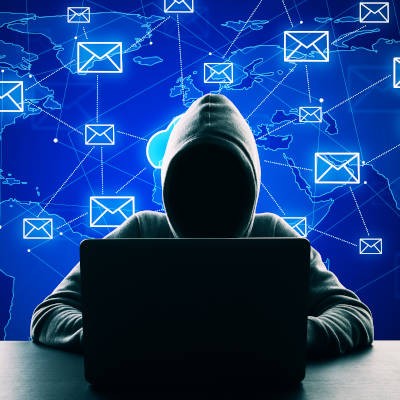While the majority of the time, email rules can make managing email functions easier through automation, email rules can also be used to compromise data security. Email rule hacks are nefarious because these attacks are unseen by most email security solutions and can expose your data to risk. Let’s discuss this under-reported issue.
What are Email Rules?
Email rules allow you to automate email-related tasks, such as replying to, screening, or even moving messages from your inbox to another mailbox. All major email clients offer some form of email management, although they may call it different things. Apple mail, Gmail, and Outlook, even Thunderbird, all offer the ability to create scripts to manage your email and automatic tasks. Email rules are a fundamental feature of email clients, and this is why it is essential to pay attention to it and examine how email rules may be used against your business.
How Can Email Rules be Compromised?
First off, email rules aren’t dangerous on their own; as, with many hacks, the initial exposure will be due to your team's credentials being acquired via phishing or poor password management. This type of threat intentionally tries to sneak under the radar. It’s designed to run undetected for a long time, which makes it all the more dangerous
It works like this: a cybercriminal embeds their scripts into your email client and operates unnoticed, performing long-term intrusions and data acquisition. They set up email rules to forward certain messages so the hacker can read them, but usually, the end-user doesn’t realize it’s happening. These hacks use your email as a gateway into your business, using it to circumvent communications with your team and your clients. Once the hackers control your email, they can either hide important information from or insert their message to your team or clients.
Why are Email Rule Hacks More Dangerous than Spam?
What makes email rule hacks more problematic than ‘traditional’ email hacks (phishing) are that email hacks are tied to the email client on the email server itself, not individual accounts. Even if your team member changes their password, uses a different computer, logs in remotely, or even as a last-ditch effort, reformats their computer, they will not prevent hackers from retaining their email access. The reason why is because the email hack is now a part of the email account itself, and not just using a stolen password to access it. A standard password hack can be revoked by changing the password, but an email rule hack requires the email client itself to be examined and secured.
How Does the Email Rule Hack Work?
As we noted earlier, the email rule hack will only work if your email account has been compromised. This is why it’s critical you ensure you have your email protected against spam, have invested in content filters, and have trained your team. Using a Gmail account as an example (Note, an email hack can be used on most any email client, including Office 365’s Outlook), we can see once the hacker gains access to your team member’s email, they can control how emails are managed:
The first thing a hacker who has gained access to your email client will do is forward emails that might warn you of any issues such as your account being accessed from a non-authorized device away from you. As you can imagine, this would leave you exposed as you won't be aware that your account has been compromised. Once they can manage your email, they can use it to gain further access to your data and burrow deeper into your network.
For example, phishing attempts are more likely to be successful; the more authentic the request for information appears to be. What could be more authentic than a request from your own organization's email account? This type of deep phishing tactic, known as spear phishing, is highly successful because it uses a trusted email from a recognized source to request co-workers' information.
Unless you manually inspect the email rules, you will never figure out why your system keeps getting reinfected or compromised despite your best efforts to remove the malware.
What Can be Done to Protect Against Email Rule Hacks?
Fortunately, despite the difficulty in recognizing an email rule hack, the solutions to prevent it are the same to prevent most hacks; staff training and adherence to network security best practices. Additionally, Microsoft allows for the management of rules which can help your team better manage your email rule behavior. For example, you could create reports to view data about malware, spam, and rule detections. Doing so will give you the tools to secure your email by reducing email rule hackers' ability to hide in plain sight.
Maryland’s Top Managed IT Experts Can Help
One advantage email rule hackers have is that few organizations are aware of them, so this type of hack has a high rate of success. As Maryland’s premier technology expert, Dresner Group prides itself on being ahead of the pack and strives to ensure your business is protected and secure. Call (410) 531-6727 today to schedule a free consultation. Don’t let your business’ data be at risk from a hidden enemy.




